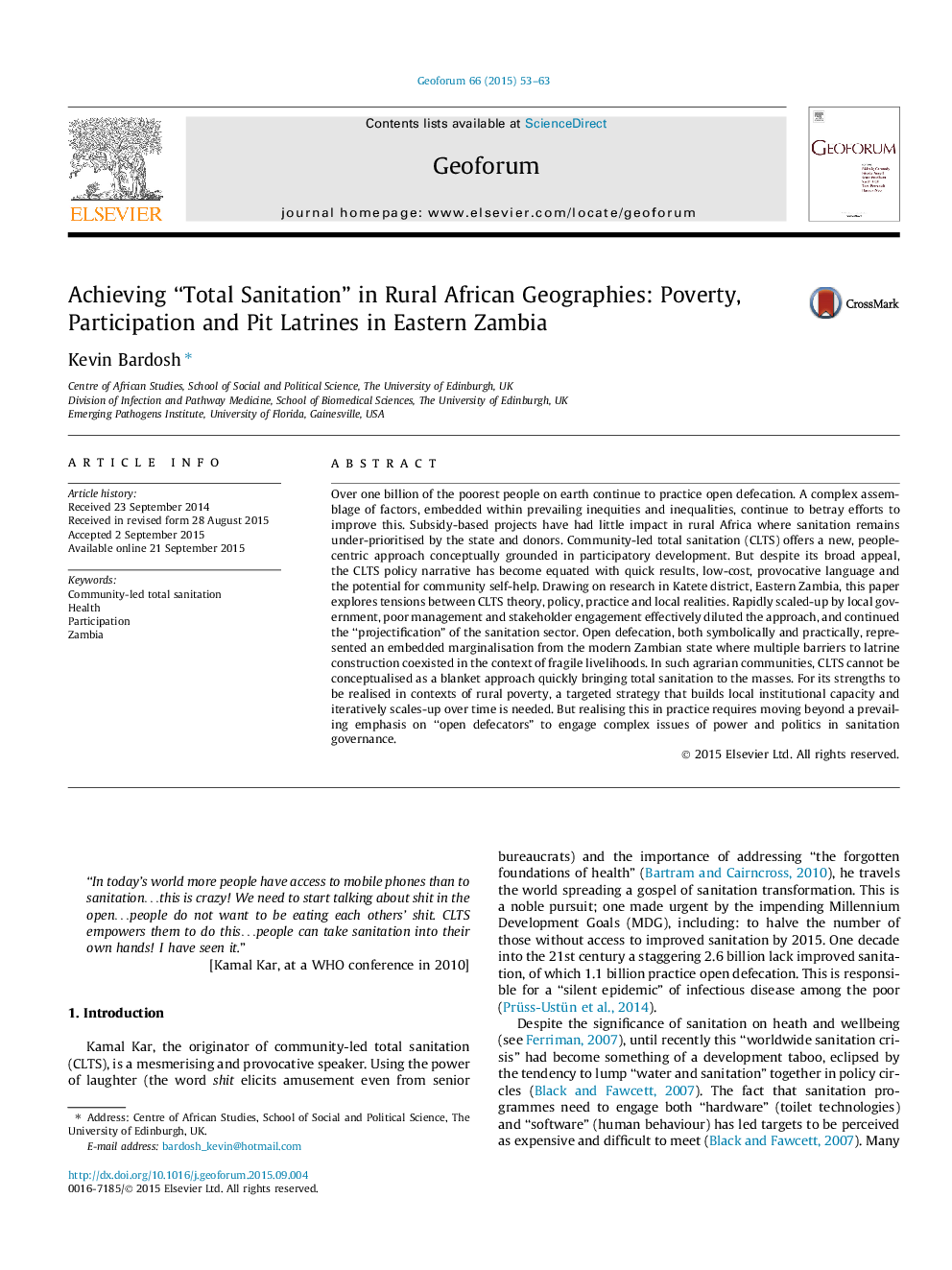| کد مقاله | کد نشریه | سال انتشار | مقاله انگلیسی | نسخه تمام متن |
|---|---|---|---|---|
| 5073595 | 1477123 | 2015 | 11 صفحه PDF | دانلود رایگان |

- Explores the implementation of CLTS in rural Zambia.
- Locates multiple failures of the approach in a context of poverty.
- Including substantial institutional shortcomings.
- And social, technical and environmental constraints.
- To avoid appropriation, CLTS needs to engage more with power and politics.
Over one billion of the poorest people on earth continue to practice open defecation. A complex assemblage of factors, embedded within prevailing inequities and inequalities, continue to betray efforts to improve this. Subsidy-based projects have had little impact in rural Africa where sanitation remains under-prioritised by the state and donors. Community-led total sanitation (CLTS) offers a new, people-centric approach conceptually grounded in participatory development. But despite its broad appeal, the CLTS policy narrative has become equated with quick results, low-cost, provocative language and the potential for community self-help. Drawing on research in Katete district, Eastern Zambia, this paper explores tensions between CLTS theory, policy, practice and local realities. Rapidly scaled-up by local government, poor management and stakeholder engagement effectively diluted the approach, and continued the “projectification” of the sanitation sector. Open defecation, both symbolically and practically, represented an embedded marginalisation from the modern Zambian state where multiple barriers to latrine construction coexisted in the context of fragile livelihoods. In such agrarian communities, CLTS cannot be conceptualised as a blanket approach quickly bringing total sanitation to the masses. For its strengths to be realised in contexts of rural poverty, a targeted strategy that builds local institutional capacity and iteratively scales-up over time is needed. But realising this in practice requires moving beyond a prevailing emphasis on “open defecators” to engage complex issues of power and politics in sanitation governance.
Journal: Geoforum - Volume 66, November 2015, Pages 53-63